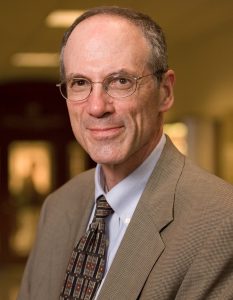Mark A. Noll is the Francis A. McAnaney Professor of History at the University of Notre Dame. Previously, he taught at Wheaton College for twenty-seven years. Additionally, he has served as a visiting teacher at Harvard Divinity School, University of Chicago Divinity School, Westminster Theological Seminary, and Regent College of Vancouver, B.C.
Noll is widely regarded as a leading scholar of religious and cultural history. He is a prolific author who has written or co-authored two dozen books, including The Scandal of the Evangelical Mind (1994). His latest books are Jesus Christ and the Life of the Mind (2011); Protestantism–A Very Short Introduction (2011); The New Shape of World Christianity: How American Experience Reflects Global Faith (2009); and God and Race in American Politics: A Short History (2008);
Book Basics
The Scandal of the Evangelical Mind (1994) was a powerful critique of evangelicalism from an evangelical, beginning with its initial words: “The scandal of the evangelical mind is that there is not much of an evangelical mind.” Nearly two decades later, Noll’s Jesus Christ and the Life of the Mind provides the rationale that undergirds Noll’s ongoing work and explores why evangelicals should be “among the most active, most serious, and most open minded advocates of general human learning” (p.x). Additionally, the postscript provides ten reasons why Noll is more optimistic today than he was seventeen years ago.
This book cannot be accurately summarized in a few sentences, nor fully grasped in a single quick reading. Those involved in evangelical life, especially those within higher education, must ponder the rich perspective and possibility it proposes. Those outside the evangelical world who want to understand what evangelical scholarship could become if it were true to its historical roots (as viewed through Noll’s eyes) will learn of a future that looks distinctly different from the recent past.
So What?
Noll knows the history of evangelicalism as well as, if not better than, any living historian. When he says he is hopeful about the future of the intellectual life of evangelicals, I listen. His reasons for this optimism are based on specific developments in recent decades. That list begins with a shift away from sectarianism in evangelical higher education and concludes with the “positive effect that individual Christian scholars are having in the broader academy” (p.163).
Do you think that the next few decades will lead evangelicals closer to the ideal (based on their history and theology) of being “among the most active, most serious, and most open minded advocates of general human learning”? Why or why not?
Mark A. Noll. Jesus Christ and the Life of the Mind (William B. Eerdmans, 2011). ISBN: 9780802866370.
